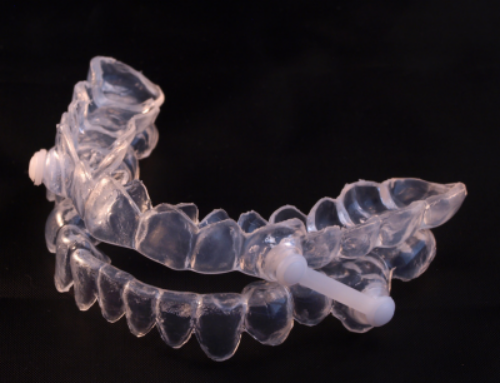 Join Virginia Sleep & TMJ Therapy’s blog as we shed light on the often-misunderstood realm of temporomandibular joint (TMJ) disorders. The TMJ plays a crucial role in jaw movement and is susceptible to various conditions that can lead to discomfort and dysfunction. Understanding the signs and symptoms associated with TMJ disorders is essential for early detection and effective management. In this comprehensive overview, we’ll explore the common indicators of TMJ disorders and discuss the importance of seeking professional evaluation and treatment.
Join Virginia Sleep & TMJ Therapy’s blog as we shed light on the often-misunderstood realm of temporomandibular joint (TMJ) disorders. The TMJ plays a crucial role in jaw movement and is susceptible to various conditions that can lead to discomfort and dysfunction. Understanding the signs and symptoms associated with TMJ disorders is essential for early detection and effective management. In this comprehensive overview, we’ll explore the common indicators of TMJ disorders and discuss the importance of seeking professional evaluation and treatment.
What is TMJ Disorder?
The temporomandibular joint (TMJ) is a sophisticated hinge joint linking the jawbone to the skull, facilitating vital actions like chewing, speaking, and yawning. It enables crucial actions like chewing, speaking and yawning. TMJ disorders refer to a group of conditions that affect the TMJ and surrounding structures, leading to pain, stiffness and dysfunction in the jaw joint and muscles.
Common Signs and Symptoms of TMJ Disorders
- Jaw Pain: A characteristic indication of TMJ disorders is jaw discomfort, which can localize around the jaw joint or extend to adjacent regions like the ears, temples and neck. The pain can range from mild discomfort to severe and debilitating, especially with movement of the jaw.
- Jaw Stiffness: Individuals with TMJ disorders often experience stiffness or restricted movement in the jaw joint, making it difficult to open or close the mouth fully. This stiffness may be particularly noticeable upon waking in the morning or after periods of prolonged jaw use, such as chewing gum or eating tough foods.
- Clicking or Popping Sounds: Another common symptom of TMJ disorders is the presence of clicking, popping, or grating sounds when moving the jaw. These sounds may occur during chewing, talking, or yawning and are often accompanied by sensations of grinding or shifting in the joint.
- Difficulty Chewing: TMJ disorders can interfere with normal jaw function, leading to difficulty or discomfort while chewing food. Some individuals may experience jaw fatigue or muscle soreness after eating, particularly with tough or chewy foods.
- Ear Pain or Pressure: TMJ disorders can cause referred pain to the ears, resulting in symptoms such as earache, pressure, or a sensation of fullness in the ears. This ear discomfort may be intermittent or persistent and is often accompanied by other TMJ-related symptoms.
- Headaches: Chronic headaches, including tension headaches and migraines, are frequently associated with TMJ disorders. The close proximity of the TMJ to the trigeminal nerve, which is involved in headache regulation, can contribute to the development of headaches in individuals with TMJ dysfunction.
- Facial Pain: Pain or tenderness in the face, particularly around the cheeks, temples and jawline, is a common complaint among individuals with TMJ disorders. This facial pain may be exacerbated by jaw movements or prolonged periods of jaw clenching or teeth grinding.
- Tooth Pain: TMJ disorders can cause referred pain to the teeth, leading to sensations of toothache or dental discomfort. It’s essential to differentiate between TMJ-related tooth pain and dental issues to ensure appropriate treatment.
Seeking Professional Evaluation and Treatment
If you experience any of the signs or symptoms associated with TMJ disorders, it’s crucial to seek professional evaluation and treatment from a qualified healthcare provider specializing in TMJ therapy. A comprehensive assessment may include a physical examination, imaging studies (such as X-rays or MRI) and a review of your medical history and symptoms.
The treatment choices for TMJ disorders differ based on the severity and root cause of the condition. Conservative approaches may include lifestyle modifications, stress management techniques, physical therapy and the use of oral appliances (such as splints or mouthguards) to alleviate symptoms and improve jaw function. In more severe cases, interventions such as corticosteroid injections, arthrocentesis, or surgery may be recommended.
Request Your Appointment Today
Understanding the common signs and symptoms associated with TMJ disorders is essential for early detection and effective management of these conditions. If you’re experiencing jaw pain, stiffness, clicking sounds, or other TMJ-related symptoms, don’t hesitate to seek professional evaluation and treatment from the experts at Virginia Sleep & TMJ Therapy. With personalized care and targeted interventions, we can help restore comfort and function to your jaw and improve your overall quality of life. Request your appointment today!




